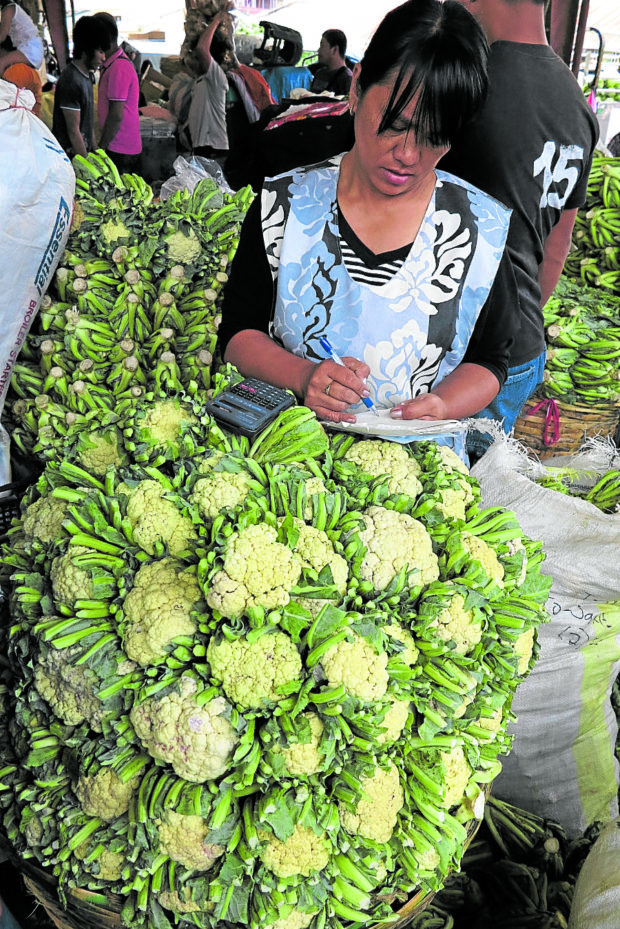Benguet vegetable traders struggle with falling prices

HURTING Vegetable farmers and traders are hurting as oversupply and travel restrictions bring down the price of their produce. —EV ESPIRITU
LA TRINIDAD, Benguet, Philippines — Cabbage now sells at P3 a kilo at the main vegetable trading post here due to overproduction, sending some farmers back to their fields with their harvests.
Some of them even dumped their produce on roadsides because they could not afford the cost of bringing these home amid falling market prices.
Others donated their vegetables instead of throwing them away or letting them rot, according to Wilson Revelar, licensing officer at the trading post.
Mayor Romeo Salda said buyers had not come here to transport vegetables to Metro Manila and other north Luzon provinces due to travel restrictions.
On Sept. 2, Benguet Gov. Melchor Diclas issued an executive order withdrawing transport schedules enforced at the onset of the pandemic in April to reduce crowding at the trading post, Benguet Agri-Pinoy trading center and Nueva Vizcaya agricultural terminal.
The delivery schedules disrupted vegetable trade in most Benguet towns, as well as in Bauko town in Mountain Province, Tinoc town in Ifugao province and Kayapa town in Nueva Vizcaya.
These towns sell their produce at the trading post here, and truckers deliver these to Metro Manila, the main market.
Before the pandemic struck, at least nine 10-wheel trucks were supplying assorted vegetables to Divisoria market daily, each bringing out as many as 18 tons.
“Right now, there are only six trucks,” said Jimmy Geston, who monitors buyers at the post. Even smaller vehicles, some carrying five tons, now number only five or six instead of nine.
Due to the glut, the municipal grounds have been turned into a drop zone for vegetable donations.
Vegetable garden
In Pangasinan province, Lingayen has allowed residents to grow their own food at the town plaza, which has been turned into a vegetable garden.
The local government started the project at the onset of the health crisis that was seen to aggravate food insecurity due to the community quarantine, said Mayor Leopoldo Bataoil.
“We only wanted to show the residents that any space, such as empty yards, can be planted with vegetables, so they need not buy them from the market,” he said.
Residents have been harvesting vegetables from the garden at least 10 times since the project started.
Recently, Lingayen celebrated the garden’s bounty through the “Tenth Pising (vegetable) Harvest,” which yielded 150 kilos of vegetables usually used as ingredients for the Ilocano dish “pinakbet.”
The vegetable garden is purely organic since villagers have been using compost.
Noting its success, the local government plans to establish hydroponics gardening, or growing plants in water to sustain the needs of the community.
—Reports from Kimberlie Quitasol and Yolanda Sotelo
For more news about the novel coronavirus click here.
What you need to know about Coronavirus.
For more information on COVID-19, call the DOH Hotline: (02) 86517800 local 1149/1150.
The Inquirer Foundation supports our healthcare frontliners and is still accepting cash donations to be deposited at Banco de Oro (BDO) current account #007960018860 or donate through PayMaya using this link.